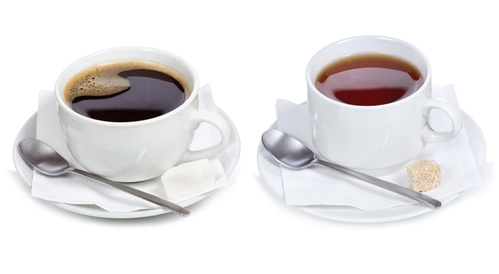For many people, the day doesn’t start until they have had a cup of coffee. Some may claim that the coffee helps them focus, while others say it keeps them awake. Still some merely acknowledge the enjoyment of the routine. A new study, however, has found one more reason why it might be beneficial to have a cup of Joe during the work day. According to findings from the Krieger School of Arts and Sciences at Johns Hopkins, caffeine may have a positive effect on long-term memory in humans.
An intriguing approach
For the double-blind trial, participants who did not regularly eat or drink caffeinated food or beverages were asked to study a number of images. Five minutes afterward they were given either a placebo or a caffeine tablet. The following day, researchers tested their memorization by asking them to correctly identify the same images from yesterday among a collection of images that were very similar but not identical. According to the study, people that had caffeine tablets did a better job of discerning between the correct and the similar images.
“If we used a standard recognition memory task without these tricky similar items, we would have found no effect of caffeine,” said Michael Yassa, assistant professor of psychological and brain sciences at the Krieger school and lead scientist of the study. “However, using these items requires the brain to make a more difficult discrimination – what we call pattern separation, which seems to be the process that is enhanced by caffeine in our case.”
Another key element of the study was the fact that the caffeine introduced after the memory test, so that researchers could determine whether the caffeine alone had an effect on memory and not coffee’s other potential advantages, such as an enhancement of attention or focus. The next step for researchers, however, is to figure out exactly how coffee chemically improves memory.
Science in the office
This study has some obvious implications for the business world. For every employee that slugs down a cup of coffee, the possibility of improved memory over the course of the day could make for a more productive work day. Especially helpful would be if further research were to find that the improved memory extended beyond just images to the ability of retaining textual information. If that were the case, then it could be worthwhile to sip coffee after drafting a weekly to-do list or memorizing a speech to be given before co-workers.
Employers may then be more inclined to install coffee pots or Keurig machines in their offices. Custom coffee mugs may not just be a sentimental business gift, but also a productivity tool to be issued by bosses to their staff. Businesses may even want to conduct their own research by providing their own coffee at the company’s expense and monitor changes in productivity. That is, of course, only if the study is further corroborated by future research.
Sip slowly
Of course, this study isn’t the final word on caffeine, nor are all of the findings on caffeine positive. First of all, the study found that the effects of a 200-mg dose specifically of caffeine had a significant impact on memory, which is about one tall Starbucks cup or two smaller cups of coffee, Forbes noted. Caffeine can also have other effects, including making the heart beat faster, raising blood pressure, causing jitters and shakes and dehydrating the body, the U.S. Food and Drug Administration. It can also cause headaches, nervousness and dizziness. All of these side effects could have as much of a negative effect on people’s ability to focus and retain information as caffeine alone could have in improving memory.
People who are curious about whether coffee can improve their memory may want to take their coffee in small doses and turn coffee mugs into business gifts for colleagues to compare notes.

